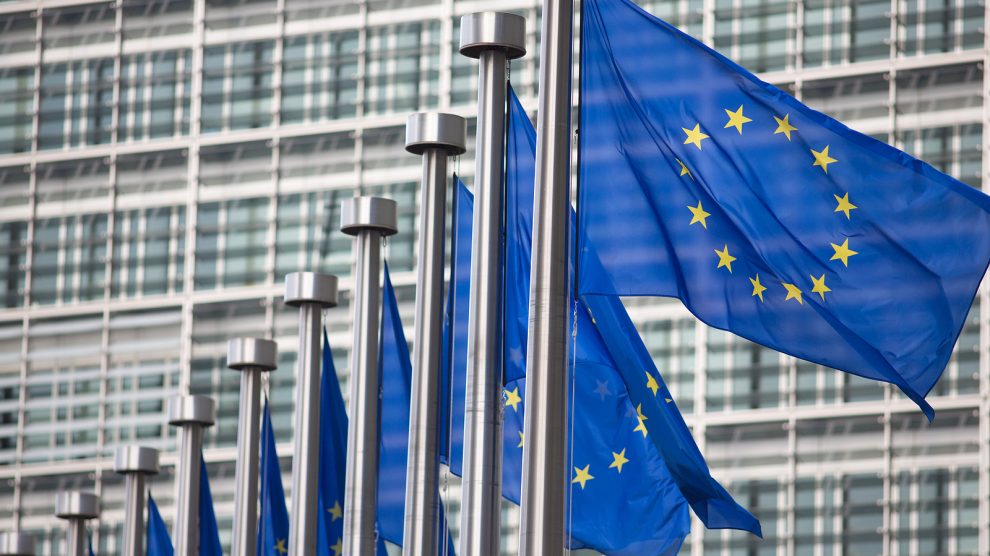In a significant move towards digitalising the economy, the European Commission has updated its VAT in the Digital Age (ViDA) proposal.
This initiative aims to revolutionise VAT systems across the EU by mandating electronic invoicing and implementing robust digital reporting requirements by 2030. As discussions unfold at the Economic and Financial Affairs Council (ECOFIN), businesses across Europe brace for the transition, highlighting a broader global shift towards digital economies.
The ViDA proposal, first introduced in December 2022, will now see invoices issued electronically, adhering to European standards, by the decade’s end. This change aims not only to streamline tax compliance but also to combat VAT fraud more effectively. The proposal allows member states discretion over various components, ensuring flexibility but also posing significant implementation challenges.
The driving force behind this shift is the digital revolution across all sectors, notably mirrored in the B2B payment landscape where the likes of Stripe and other digital payment platforms are remolding financial transactions to be faster and more secure.
A similar urgency for digital transformation is noted in the B2B sectors’ increasing inclination towards real-time and automated payment solutions, as chronicled by industry leaders and analytics from KPMG and Gartner.
Europe’s economic landscape, already challenged by the high costs related to delayed payments and a trending increase in business cutbacks due to economic instability, stands at a critical juncture. As per Intrum’s latest report, European businesses annually lose a substantial amount of working hours chasing late payments, linking directly to the heightened push for digital payment solutions among businesses.
Member states are expected to develop real-time reporting mechanisms individually, potentially increasing compliance costs and timing challenges for companies, a nuance acknowledged in the ViDA discussions. However, the ultimate aim is to strengthen cross-border transaction security, lessen administrative burdens, and promote a more integrated European economic environment.
The adoption of ViDA represents a significant technological advancement in the EU’s VAT collection system. The transition to mandatory e-invoicing will significantly reduce the likelihood of errors and fraud. Automated systems for generating and verifying invoices can identify discrepancies more effectively than manual processes. This will help close the VAT gap, the difference between expected revenue and actual collections, which is a significant issue for many EU countries.
From an administrative perspective, digital reporting requirements will streamline processes for both businesses and tax authorities. Companies will benefit from reduced paperwork and faster processing times, while tax authorities will have real-time access to transaction data, allowing for more efficient and effective monitoring and enforcement.
The shift to digital VAT systems also aligns with broader trends in the global economy. As more transactions move online, traditional paper-based systems are becoming increasingly obsolete. Digital invoicing and reporting are not just about compliance but about staying competitive in a rapidly evolving market. Businesses that embrace these changes early will likely gain a significant advantage over those that are slower to adapt.
The ViDA proposal also underscores the importance of international cooperation in the digital age. As member states work to implement these changes, there will be a need for increased collaboration to ensure consistency and interoperability across borders. This will be crucial for businesses operating in multiple EU countries, as it will help reduce the complexity and cost of compliance.
As the discussion on ViDA adoption progresses within ECOFIN, feedback and revisions will likely address concerns ranging from small business impacts to compliance deadlines, ensuring that the transition, while ambitious, consents to a pragmatic and inclusive progression towards a fully digital EU economy by 2030. With the growing intersection of technology and finance, entities such as AI and blockchain are predicted to further influence the future of VAT management, aligning with broader digital transformation initiatives across the globe.
The ViDA proposal marks a pivotal step in the EU’s journey towards a more digital and integrated economy. By embracing electronic invoicing and digital reporting, the EU aims to create a more efficient, secure, and competitive economic environment. This transition will not be without its challenges, but the potential benefits in terms of reduced fraud, lower administrative costs, and enhanced global competitiveness make it a necessary evolution for the future.
Read the complete article at EU Moves Towards a Digital Economy: Evaluating the Impact of Mandatory ViDA Compliance (complexdiscovery.com)
This content has been produced in collaboration with a partner organisation through our Global Visibility Programme. Our programme helps companies boost their digital presence and strengthen the thought leadership of their experts. Find out more here.

